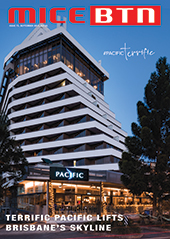MICE industry 'down under' threatened by tyranny of distance/emissions combo?
- MICE News
- Thursday, 28 March 2024
Tourism & Transport Forum Australia (TTF) is warning Australasian MICE businesses that it sees a downturn because of emissions and distances flown.
“Many businesses don’t want to take part in a conference that is going to damage their own carbon targets, nor do they want to send a whole lot of delegates to a conference that far away,” Margy Osmond, the TTF ceo, told Bloomberg.
“So we are already seeing really significant impacts on our attractiveness as a business events destination.”
Osmond also said visits from the likes of Taylor Swift, who performed in Melbourne and Sydney last month, would become rarer as superstars balked at the carbon investment necessary to fly to Australia.
Adding to the argument, Bloomberg also recently published another report that highlights the increasing costs involved in governments' net-zero commitments - including the higher costs of sustainable aviation fuel (SAF).
There still are doubts SAF will be effective, even if enough can be produced to satisfy customer/airline demand, suggesting airlines' fleets may shrink and fares could rise further.
Given all the factors that are driving airfares higher, it would be a miracle if they came down to levels seen before the pandemic, said Pierre Benckendorff, a tourism and airline expert at the University of Queensland.










